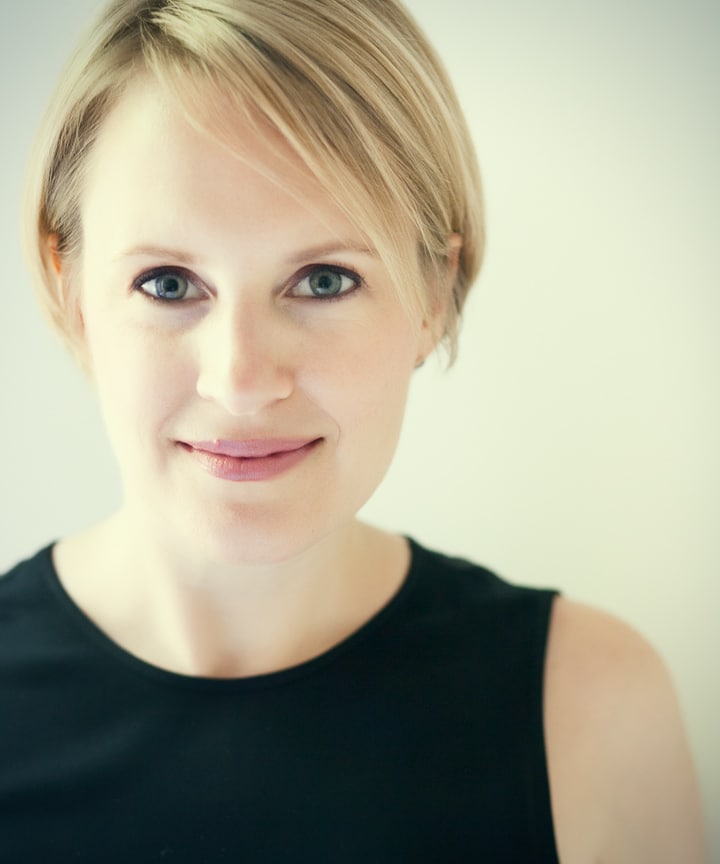by Ann Marie Ippoliti
I often ask myself what in particular drove me to immerse myself in learning everything I can about positive psychology. There is the obvious answer: Who doesn’t want to be happier? And there are a multitude of other reasons, like the mind-blowing science, the people who continually inspire me with their stories, and the sharing of the human experience, allowing us to realize we all go through the same emotions (at varying degrees) and are all working toward greater well-being.
Being at IPPA’s Fourth World Congress on Positive Psychology in June reminded me of all those things. Every speaker brought at least one of those elements to the table. And each person’s talk spoke to me in some way.
When I think back to the themes that most resonated with me, they are curiosity, discomfort and the courage to fail, and positive emotions as nutrients.
Curiosity
It was curiosity that brought each to us to the conference, and it was curiosity that ignited the research many speakers presented. Presenter David Cooperrider, co-creator of Appreciative Inquiry, a strength-based approach to innovation and change, expressed the importance of curiosity so eloquently with these words, “Human souls move in the direction of the questions we ask.” This has helped me to learn to ask better questions in order to create a path towards flourishing.
Discomfort and the Courage to Fail
Whenever I tell people about positive psychology, I try to make the point that it’s not just about being happy—it’s about realizing the need to accept suffering and discomfort in our lives. You wouldn’t think that suffering and sadness would be such a prominent theme at a conference on positive psychology, and yet, it might have been more present than topics that immediately come to mind, like strengths.
Sociologist and psychologist Corey Keyes expressed the discomfort he’s experienced in his own life (he suffers from depression) and also spoke about how uncomfortable we are as a society talking about the disease. His “coming out” about his experience with mental illness was met with so much love from those in the room. Everyone was able to relate to how uncomfortable it can be to share our stories of suffering, even though we know that no one can bypass it.
None of us wishes to add discomfort to our lives, and yet every meaningful moment was achieved with at least some level of discomfort. It’s discomfort that helps us appreciate why flourishing is such a desirable outcome. Along with discomfort comes the courage to fail. As with all learning, we can only gauge how far we’ve come by reflecting on our experiences, which include so many failures that were all stepping stones to our successes. In her talk, psychology professor and researcher Carol Ryff, creator of the Ryff Scales of Psychological Well-Being, expressed the need for suffering, maintaining that our eudemonic well-being can only be achieved via encounters with the negative. It’s refreshing to look at our challenges as opportunities to embrace discomfort in our lives.
Positive Emotions as Nutrients
Both Barbara Fredrickson, author of Love 2.0, and Rollin McCraty, vice president and director of research for the HeartMath Institute, discussed the direct link between our positive emotions and our health, using heart rate variability (HRV) as an indicator. (HRV has been found to decrease under stress and anxiety, and a reduced HRV is associated with a range of health conditions.)
With her “broaden and build” theory, Fredrickson expressed the need to treat positive emotions like “nutrients,” which we must ingest daily as the benefits show up long-term. Practicing every day is what gets us there. This practice (the nutrients) affects our HRV, which she told us can actually change gene expression. McCraty took this one step farther, showing how HRV is not only important to our own health but also to those around us. His research shows that our heart radiates an electromagnetic signal reaching three feet away; when we are within five feet of other people, we are directly impacting each other through the health of our hearts.
Since returning from the conference, I find myself coming back to each of these themes throughout my days. My goal now is to continue embracing them: by beginning each day with curiosity, waking up to the question, “What can I learn today?”; by taking a moment to embrace each challenge as it hits me, knowing that eventually it will help me grow; and more than anything, by reflecting at the end of my day on the positive emotions I experienced that day, and taking a moment to savor them.
Ann Marie Ippoliti is an eager student of positive psychology who is currently earning her Certificate in Positive Psychology with the Wholebeing Institute. She works in the fashion industry, specializing in merchandise planning, and has more than 15 years of experience working with multibillion dollar companies, including Michael Kors, the Gap, and Polo Ralph Lauren. Ann Marie has been called a “guru of efficiency” by her peers, and aims to integrate that efficiency with positivity.




Seems like everywhere I turn I’m seeing HeartMath! Thanks for sharing the three things you’re bringing home from IPPA! I wasn’t able to be there, so this is very special to me! So much appreciation!!!
Nicole, so glad I could share some learnings and also since you have been seeing the HeartMath it is great to be able to reinforce the synchronicity of it popping up around you 🙂
Thanks for sharing. I like the concept of positive nutrients and having a strong emf. Looking forward to seeing you at kripalu in January if not sooner.
Jeff, thanks for reading and glad I could share Barbara’s concept of positive nutrients. And sooner rather than later – January is far and will be cold 😉
What a wonderful write up from the conference. It really made me feel as though I was back there.
Thank you Ruth! It was so great to be able to share the conference experience with 3 fellow SPF6-ers!!
Ann Marie, This is a wonderful capsule of learning for those of us who weren’t able to attend. Given that our hearts effect each other, leads me to focus on bringing the most positive energy I can to every conversation! Thank you for sharing.
Thank you Deb! I’m glad I could bring a bit of the conference home with me to share.
Oh, THANK YOU Ann! That’s the best summary I’ve read so far! I actually practice with a HeartMath handheld unit and it has saved me! And I can’t wait to start thinking about my Positive Emotions as nutrients! Bravo! PS: I’m also glad to meet a fellow CiPPer who is not already in the field-I’m an Interior Designer! Ha!
Cate, I will have to check out the HeartMath handheld device! Also fun to see how positive psychology (and CiPP!) is connecting people from so many fields!! 🙂
Thank you Ann Marie. We in the Southern Hemisphere who are also studying CiPP appreciate learning about the experiences on the other side of the globe. We are separated by the seas but we share the same heartfelt desires for knowledge and understanding…IPPA must have been some conference!
Karen, how exciting for you to be taking the CiPP course in Australia! It is great to have our group growing worldwide!! 🙂
This is was a very interesting summary of some major points of positive psychology. I have always agreed with the view that you can’t have happiness without a little sadness. I always try to remember that there must be a reason for my sadness and that helps to get through the low times. I really like what you wrote about learning to ask better questions. That is a very interesting take on learning. Thanks so much for sharing!
Just want to say thank you to Corey for acknowledging that indeed there is suffering in this life and that happiness and sadness exist on a continuum and often help to define one another . And as an advocate on behalf of people living with mental illness and their families I am encouraged by your perspective . I too have felt that for far to long we have looked at the problems through the wrong lenses and if we truly desire to help we must believe it is possible to share this message with everyone . This takes courage – to stand apart from conventional models of pathology while simultaneously acknowledging all that we have learned in this vast arena . I just think it is really wonderful that after so many years of living with a model focused on affirming negative experience we finally have one that leads from a positive direction . ( just curious to know if Ami ( K….) and his Autism research continues there at Emory ? Thanks . I’m a CIPP graduate .
Beautiful. Thank you for sharing these “nuggets” from your trip, and for weaving in your personal observations and how you are living your learning.